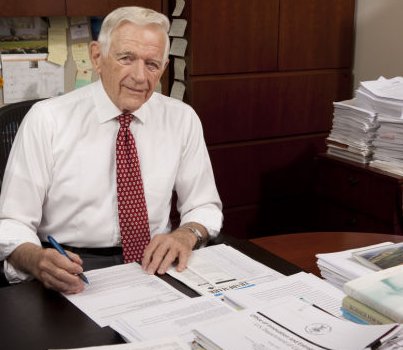|
Biography At the forefront of WARF's (Wisconsin Alumni Research Foundation, an independent, non-profit foundation chartered to support research at the UW-Madison and the designated technology transfer organization for the university) efforts was Howard Bremer, WARF's patent counsel and president of the newly formed Society of University Patent Administrators (SUPA). Bremer understood the need for collaboration between businesses and universities if the results of government sponsored research were ever to reach the marketplace. He understood the importance of a sympathetic and encouraging federal climate to technological progress. He also knew that left to their own devices, universities and industries would likely never generate the framework needed for regular cooperation. In 1968, after a series of intense negotiations, Bremer, together with DHEW's patent counsel Norman Latker and UW-Madison special assistant to the president Bill Young, obtained the first of a new breed of contract between universities and federal agencies, known as the Institutional Patent Agreement (IPA). Signed between the UW-Madison and the DHEW, the IPA granted patent rights to the UW-Madison on DHEW-funded inventions, giving the university the freedom to license these technologies to companies. By 1973, Bremer and Reuben Lorenz, a financial officer at the UW-Madison, negotiated a similar agreement with NSF, and during the coming years, many universities and federal agencies followed suit. The IPA not only signaled a change in the government's attitude toward university research and its commercialization, but more importantly, it also set the stage for the legislative effort culminating in the passage of the 1980 Bayh-Dole Act. In fact, Bayh-Dole is often seen as a codification of the terms and provisions contained in the first IPA between WARF and DHEW. But WARF's part in the Bayh-Dole story didn't end with the signing of the first IPA. Over the coming years, Bremer and SUPA spent countless hours lobbying for the legislation, testifying before Congress, and assembling compelling examples of promising research whose development had been thwarted by the government policies then in place. In all, it took nearly 20 years to secure the passage of Bayh-Dole. |
Howard Bremer
Emeritus patent counsel for WARF and President of Society of University Patent Administrators (SUPA)
|


